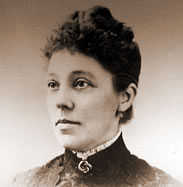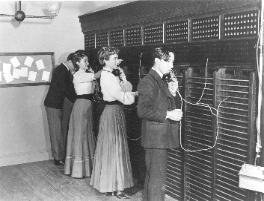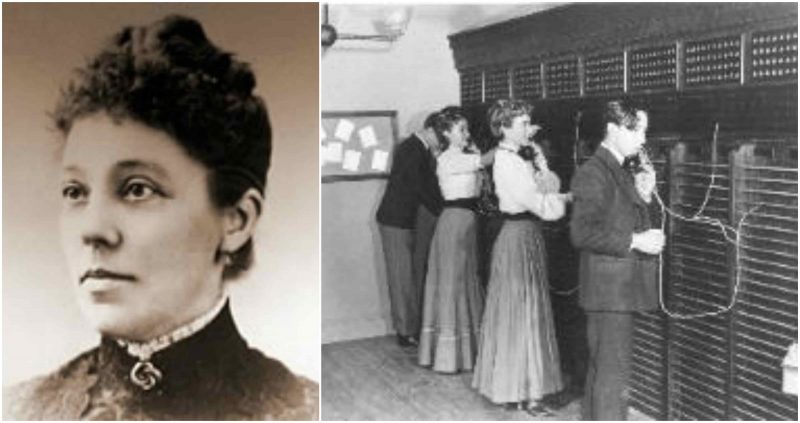The first telephones were hard enough to use without the added harassment of the teenage boys who had been used as telephone operators – after all, they’d been telegraph operators from the beginning. But they weren’t suited for actually talking to real people. They were impatient, they liked to play jokes, and they swore. Thus, on September 1, 1878, Emma Nutt was hired, starting a career that lasted between 33 and 37 years, ending with her retirement sometime between 1911 and 1915.

Alexander Graham Bell, the inventor of the first practical telephone, hired Emma from a telegraph office. She was paid $10 per month for a 54-hour workweek, though she did get an hour for lunch. She supposedly remembered every number in the New England Telephone Company directory. Hours later, her sister Stella became the world’s second female telephone operator. Unlike Emma, Stella got married and only remained on the job for a few years.
As an operator, Nutt pressed all the right buttons: she was patient and savvy, her voice cultured and soothing, according to the New England Historical Society. The customer response to her voice and patience was overwhelmingly positive, so boys were soon replaced by women. In 1879 these included Bessie Snow Balance, Emma Landon, Carrie Boldt, and Minnie Schumann, the first female operators in Michigan. Her example became the model all telephone companies sought to emulate, and by the end of the 1880s, the job had become an exclusively female trade.

To be an operator, a woman had to be unmarried and between the ages of seventeen and twenty-six. She had to look prim and proper and have arms long enough to reach the top of the tall telephone switchboard. Like many other American businesses at the turn of the century, telephone companies discriminated against people from certain ethnic groups and races. For instance, African-American and Jewish women were not allowed to become operators.
‘EMMA,’ A synthesized speech attendant system created by Preferred Voice Inc and Philips Electronics NV is named in her honor.
